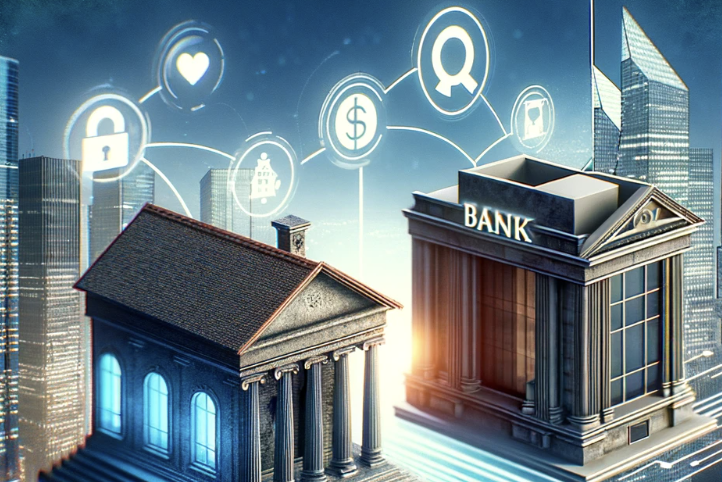Embracing the Future: The Rise of Fintech and Its Impact on Traditional Banking
The financial sector is witnessing a monumental shift with the rise of financial technology, commonly known as fintech. This digital revolution, driven by innovative startups and technology companies, is not only changing the way we understand and interact with money but is also challenging the very foundations of traditional banking. This article explores the dynamic landscape of fintech, its implications for consumers and banks, the challenges it poses, and the future it is shaping in the world of finance.

Fintech encompasses a broad range of technological innovations in financial services, including mobile payments, peer-to-peer lending, blockchain, and cryptocurrency. These technologies offer a more streamlined, efficient, and user-friendly approach to financial services, catering to a digitally savvy consumer base that demands convenience and speed. The appeal of fintech lies in its ability to bridge gaps left by traditional banking institutions, such as high fees, lack of transparency, and cumbersome processes.
For consumers, the rise of fintech has been empowering. Mobile banking apps allow individuals to manage their finances at their fingertips, from tracking spending to investing in stocks. Peer-to-peer lending platforms have democratized access to credit, bypassing traditional credit checks and offering loans based on alternative data. Meanwhile, blockchain technology promises greater security and transparency in transactions, with cryptocurrencies offering a new paradigm of digital currency free from central bank control.
The implications for traditional banks are profound. Fintech startups, unburdened by legacy systems and extensive regulatory frameworks, can innovate at a rapid pace and capture market share by offering specialized services that banks traditionally did not provide or did so inefficiently. In response, many banks are beginning to embrace fintech, either by developing their own technology solutions, partnering with fintech companies, or acquiring them outright. This collaboration between fintech and traditional banking is creating a hybrid model where innovation meets experience, offering consumers the best of both worlds.
However, the fintech revolution is not without its challenges. Regulatory ambiguity is a significant hurdle, as governments and financial authorities grapple with how to regulate these new technologies and business models. Data security is another concern, with the increase in digital transactions raising the stakes for cybersecurity. Additionally, the rapid growth of fintech has led to fears of market saturation and questions about the long-term viability of some startups.

Looking ahead, the future of finance is undoubtedly digital. As technology continues to evolve, we can expect fintech to delve deeper into artificial intelligence, machine learning, and predictive analytics, further personalizing and enhancing the consumer experience. The integration of fintech in everyday life will become seamless, with financial services becoming increasingly invisible and embedded in other products and services.
In conclusion, the rise of fintech represents a pivotal moment in the evolution of finance, offering unprecedented opportunities for innovation, efficiency, and accessibility. While challenges remain, the potential for positive transformation is immense. As traditional banks and fintech companies navigate this new landscape, the ultimate winners will be the consumers, who stand to benefit from a more inclusive, transparent, and user-friendly financial system.
(Writer:Weink)





